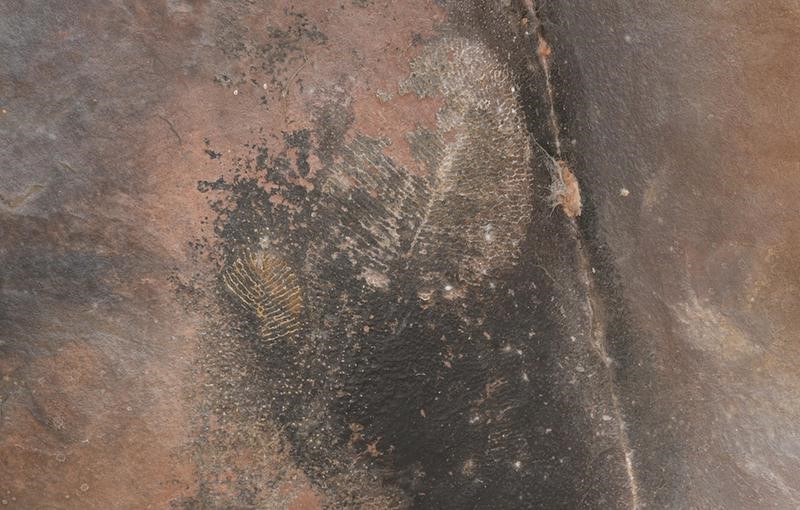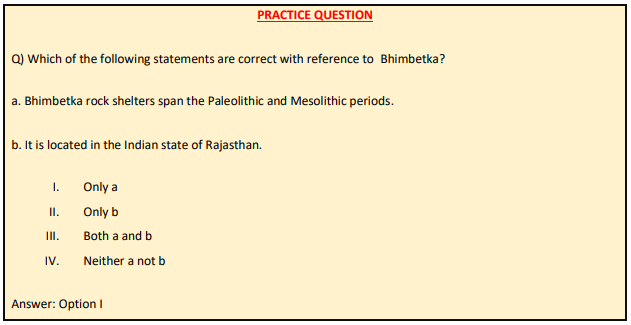Description

Copyright infringement not intended
Context: Fossils of an extinct species of animal that scientists reported in a sensational discovery from India’s Bhimbetka Rock Shelters in 2021 have been found to be belied hopes.
Details:
- In 2021, researchers spotted by chance what looked like a 44-cm-wide fossil of Dickinsonia, an animal that lived at least 538 million years ago, in a cave.
- Dickinsonia fossils in other parts of the world have indicated it was circular or oval in shape, somewhat flat, with rib-like structures radiating from a central column.
- In 2022, researchers were able to conclude that “the impression resulted from decay of a modern beehive which was attached to a fractured rock surface”.
.jpeg)
About Dickinsonia:
- It is an extinct genus of basal animal that lived during the late Ediacaran period in what is now Australia, Russia and Ukraine.
- These creatures arose in a world devoid of predators, and had no need for hard protective carapaces or skeletons.
- The discovery of cholesterol molecules in fossils of Dickinsonia lends support to the idea that Dickinsonia was an animal.

Bhimbetka:
- The Bhimbetka rock shelters are an archaeological site in central India that spans the Paleolithic and Mesolithic periods, as well as the historic period.
- It exhibits the earliest traces of human life in India and evidence of Stone Age starting at the site in Acheulian times.
- It is located in the Raisen District in the Indian state of Madhya Pradesh
- It is a UNESCO World Heritage Site that consists of seven hills and over 750 rock shelters distributed over 10 km
- At least some of the shelters were inhabited more than 100,000 years ago.
- The Bhimbetka site has the oldest-known rock art in India, as well as is one of the largest prehistoric complexes.
- Bhimbetka meaning "Bhima's resting place" or "Bhima's lounge", is compound word made of Bhima (second brother among the five Pandavas of Mahabharata) and Baithaka (seat or lounge). According to the native belief, Bhima during his exile used to rest here to interact with the locals.


https://epaper.thehindu.com/ccidist-ws/th/th_delhi/issues/26165/OPS/GKLATLH0R.1+GFHATM6FU.1.htmlb

















